-
•
•
41 responses
Jana Riess had up a particularly interesting and provocative post out today. I suspect most readers are familiar with her excellent Next Mormon Survey which should be coming out in a complete form in March but which has also generated many articles and posts. Today Jana mentioned that her survey has 33% of Millennial missionaries coming home early from their missions. Read More
-
•
•
44 responses
Steve, over at BCC had up a rather interesting post on authority and excommunication the other day. I actually agree for the most part with what Steve says. This line in particular sticks out: Read More
-
•
•
14 responses
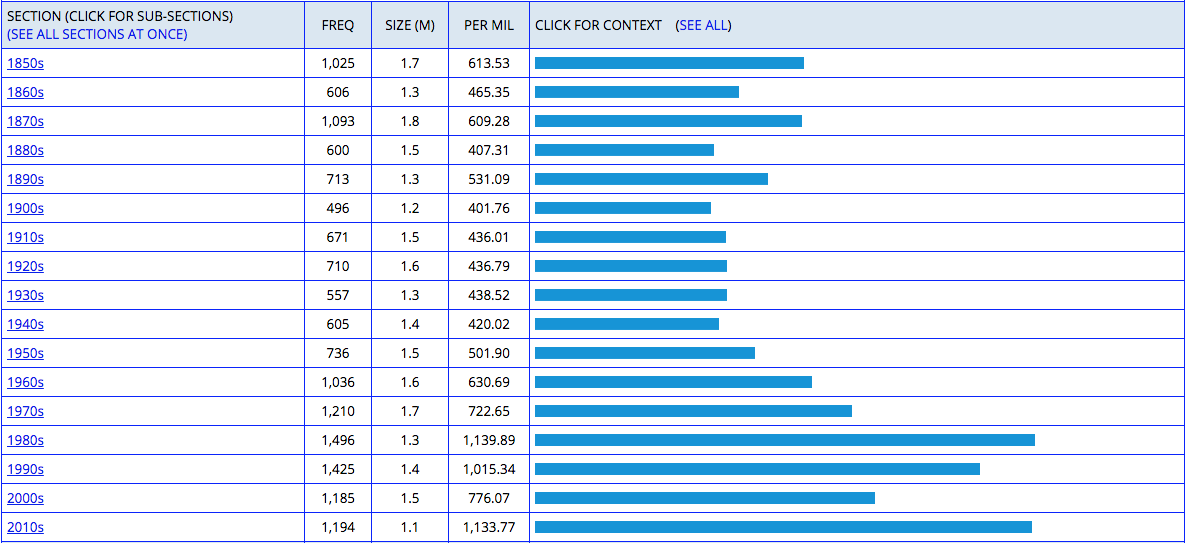
As I’ve been re-reading talks from the latest general conference, something keeps standing out to me: the exclamation points. General authorities these days don’t shout when they give their talks. Had I been transcribing these talks when I listened to them last April, I wouldn’t have used many exclamation points. But reviewing the written talks, I see so many, and that made me wonder whether this is a new thing. Are general conference talks including more exclamation points than they have in the past? Of course, I don’t have to wonder. BYU linguistics professor Mark Davies has created a tool… Read More
-
•
•
15 responses
A few years ago, a Texas lawyer named Keith Jaasma gained some notoriety for his poetry. Mr. Jaasma would take U.S. Supreme Court opinions and boil them down to haiku compositions that summed up the gist of the holding. For example, in the case of Brown v. Board of Education of Topeka, he summarized the opinion in haiku form as follows: Schools for black and whiteSeparate is not equalDesegregation I was charmed by Mr. Jaasma’s trick, and for a couple years now, I’ve been using it to help me break down things that are difficult to understand. The process of… Read More
-
•
•
11 responses
I adapted this post from a talk that I gave in my ward on June 24, 2018. We See the Same Things Differently I do not know what it is like to live without glasses. That’s because I have been wearing glasses for longer than I have memories. There’s a photo of me—it might be hanging up in my parents’ house—when I’m less than two years old. I’m straddling a toy horse with wheels on it, standing up, looking back at the camera, and I have prescription goggles strapped to my little baby head. The reason that the doctors knew… Read More
-
•
•
We’re happy to share Kurt Manwaring’s interview with Devery Anderson. Anderson is a well known historian, starting with Salt Lake School of the Prophets,The Development of LDS Temple Worship, 1846-2000: A Documentary History, and Joseph Smith’s Quorum of the Anointed, 1842-1845: A Documentary History. I suspect many of you have these books. His most recent book is not LDS oriented. Emmett Till: The Murder That Shocked the World and Propelled the Civil Rights Movement has been getting very good reviews. He works at Signature Books. Read More
-
•
•
6 responses

For ten years, a Baltimore non-profit called Thread has been working with the youth of that city. Thread’s goal is to “foster students’ academic advancement and personal growth into self-motivated, resilient, and responsible citizens.” It does this by seeking out underperforming high school students and providing each one with a “family of committed volunteers” who coach them and connect them with other community resources. Thread is just one of hundreds of non-profits focused on youth services (Charity Navigator lists 577 such organizations ), but Thread has gotten attention recently for its effectiveness in helping youth achieve positive outcomes. Eighty-eight percent… Read More
-
•
•
4 responses
Times and Seasons hopes you will join us in welcoming our latest guest blogger, Levi Jones. Levi is an attorney with the U.S. Department of Commerce, where he handles general litigation matters. Prior to joining Commerce, Levi worked for several years as a corporate lawyer for a D.C. area firm. Levi earned his law degree from George Washington University Law School in 2009, where he was a production editor on the school’s Law Review. Before this, Levi earned Bachelor’s degrees in Economics and International Studies from the University of Utah. Levi lives in Manassas, Virginia, with his wife and two… Read More
-
•
•
10 responses
About a week ago, the first volume of the new official history of the Church was published. I finished reading through it this weekend, and I have to say that it is fantastic. The style of prose reads like a novel (many creative authors were employed as the writers or consultants for the book), but it is very much rooted in some of our best understandings of the events and people who lived in the early period of the Church. The combination of the two results in a very readable, but accurate history. The time frame that this volume covers… Read More
-
•
•
6 responses
Welcome to the eighth chapter of the not quite weekly reading club for Adam Miller’s Future Mormon. For general links related to the book along with links for all the chapter discussions please go to our overview page. Please don’t hesitate to give your thoughts on the chapter. We’re hoping for a good thoroughgoing critical engagement with the text. Such criticisms aren’t treating the text as bad or flawed so much as trying to engage with the ideas Adam brings up. Hopefully people will push back on such criticism if they disagree or even just see flaws in the logic. That’s when… Read More
-
•
•
32 responses
This statement is not nonsensical or trite. It is the essence of our belief in six words. It is, in its own way, even lyrical. One occasionally hears objections to the effect that statements can be true, or friends can be true, but how can an organization be true? I started writing this post some time ago, before Michael Austin’s recent post and not in response to it, but his post can serve as a thoughtful and well-written example of the genre. Michael writes: I simply can’t comprehend what it might mean for a group of 15 million people or… Read More
-
•
•
12 responses
A couple of years ago I started a group project called the General Conference Odyssey. Along with some friends, I’m reading every General Conference that’s easily accessible on LDS.org (that means we’re starting with October 1971) and writing up my thoughts. At a rate of one session per week, it will take us about 14-15 years to get through the entire inventory. You can read more about the project, and find a mostly-complete index of every blog post to date, here. After posting my entries at Difficult Run for the first couple of years, I moved over to Meridian a… Read More
-
•
•
18 responses
We’re happy to present Kurt Manwaring’s interview with Matt Grow, the editor of the Church’s new Saints volume. There’s a ton of positive response to this new official history of the Church. It appears to have hit the sweet spot of accuracy yet readability for typical members. I’m pretty impressed with it, although I’ve not yet had time to read much. I can’t wait to see the next few volumes. Read More
-
•
•
20 responses
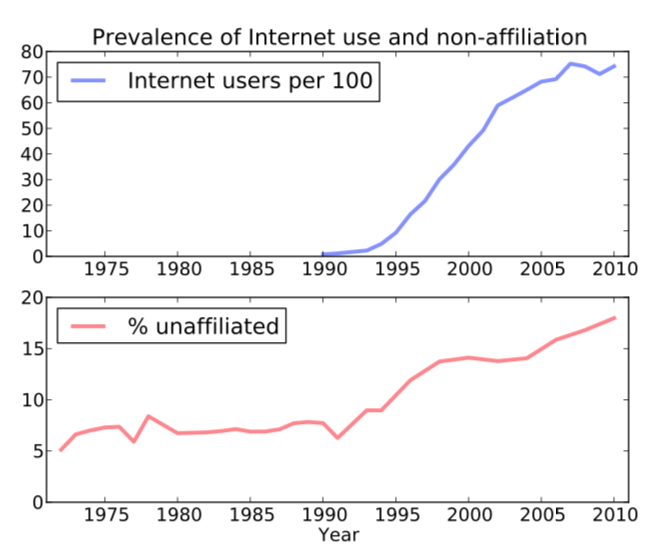
A common belief, especially by critics, is that Mormon retention has fallen primarily due to the rise of the internet. The argument goes that with the internet becoming ubiquitous that people encounter troubling historical facts. Those facts then undermine their testimony causing them to leave the Church. While I’m sure this has happened to many people, I’m very skeptical it’s the real issue people leave the Church in general. Read More
-
•
•
33 responses
The last 4,000 years of religious history, up to and resulting in us, can be described as a series of questions and answers, with each new question arising out of the previous answer over generations or centuries as the full implications of each answer become understood. Read More
-
•
•
41 responses
Last week, the Church released an official statement from President Nelson regarding the Church’s name and an accompanying update to the style guide. The Bloggernacle was unimpressed.[ref]I’m going to use “Bloggernacle” to refer to the overall Mormon social media community until somebody shows me a better name.[/ref] This isn’t really a surprise, of course. Looking cool and looking impressed are usually mutually exclusive, and since social media’s primary function is personal brand management, looking impressed is decidedly rare. Still, it got me thinking. If prophets are imperfect, why should we follow them? Before I get to that–and it’s a question… Read More
-
•
•
17 responses
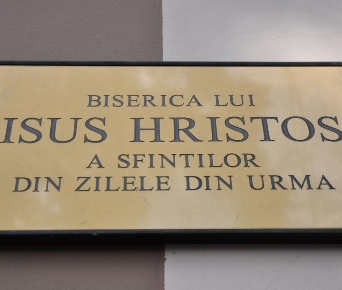
The requirement to use the official name of the Church is meeting with much willingness to comply. One of the challenges is the length of the words, in particular for online references. If that is the case in English, it is all the more so in many non-English languages. What about the translation of latter-day? I recognize that this topic has certainly been discussed at length in the Translation Department and I assume the option taken has been to leave well-established translations, even if inaccurate, unchanged. However, as names of websites and twitter accounts and the like are now being… Read More
-
•
•
12 responses
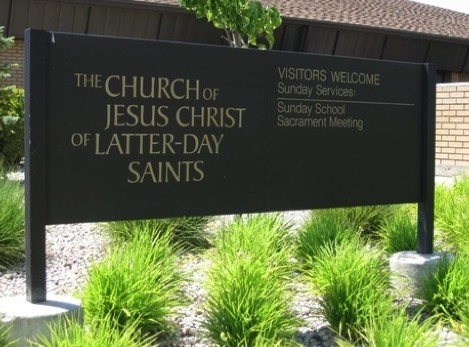
Like many others I found it hard to avoid the humor in the Church’s statement downplaying the use of LDS and Mormon. This isn’t the first time the Church has tried to get people to stop using such terms. Pres. Hinckley back in 1995 changed the logo design of the Church’s name to emphasize Jesus Christ. He also in 2001 in a letter sent to all wards asked members to refer to ourselves as Latter-day Saints and to use the full name of the Church. Read More
-
•
•
9 responses
We all know that revelation frequently requires study. Many of the key doctrines of the restoration came from revelations given to Joseph as he was going through and modifying the Bible by way of command. Some of these were treated as modifications of the Biblical texts (such as in our Book of Moses) while others were treated as independent visions or revelations (such as D&C 76). The key part though was studying. (See D&C 9:7-8) We even know that during the work on the New Testament that Joseph began consulting a copy of Clarke’s Bible Commentary and using some of… Read More
-
•
•
16 responses

Is the world a generally wonderful place that is constantly improving and generally better today than it ever has been? Or, to restate the obvious, do we live at peril every hour in a world we must avoid becoming part of, and is this alienation from the world a fundamental part of the message of Jesus? As is usually the case with such things, the answer to both questions is: yes. And this is perhaps nowhere more clear than in Yellowstone National Park. Read More
-
•
•
4 responses
Welcome to the oft delayed seventh chapter of the increasingly not weekly reading club for Adam Miller’s Future Mormon. For general links related to the book along with links for all the chapter discussions please go to our overview page. Please don’t hesitate to give your thoughts on the chapter. We’re hoping for a good thoroughgoing critical engagement with the text. Such criticisms aren’t treating the text as bad or flawed so much as trying to engage with the ideas Adam brings up. Hopefully people will push back on such criticism if they disagree or even just see flaws in the logic.… Read More
-
•
•
36 responses
Jana Riess did an oft shared post this week on “cafeteria spirituality.” This in turn generated a lot of discussion. I just wanted to make a few comments. First I think we should distinguish between what some have called cafeteria Mormonism from cafeteria spirituality. I don’t think they’re really the same although Jana conflates them somewhat. Cafeteria Mormonism usually means simply picking and choosing what teachings one accepts. Cafeteria spirituality I think is largely about supplementing ones practices beyond Church, church activities, and suggested practices. They seem rather different. Read More
-
•
•
4 responses
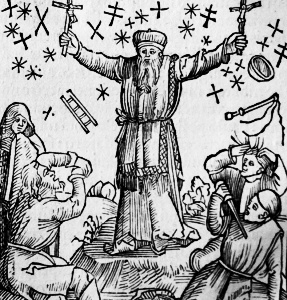
If you spend time browsing a medium-size collection of early modern pamphlets, you’re likely to come across printed reports of a prophet receiving visions, or preaching in one town or another. Read More
-
•
•
2 responses
Early Israelite prophets are not averse to a little drama! Moreover, their choice of dramatic form is often quite effective and instructive. One of the more striking and poetic moments is when Ahijah prophesies that Jeroboam will become the king of Israel. Jeroboam has a new garment he is wearing that day—perhaps a cloak. Ahijah finds Jeroboam while he is out in a field, pulls the new cloak off of him, and tears it into twelve pieces! (1 Kings 11: 29-30). How must Jeroboam be feeling as Ahijah is doing this? It is quite striking that he is willing to… Read More
-
•
•
13 responses
There’s no doubt that the three kingdoms in D&C 76 have terminology related to 1 Cor 15. However the tendency of Mormons to read 1 Cor 15 in terms of D&C 76 is unfortunate. While they’re related somewhat they’re ultimately addressing very different topics. 1 Cor 15:39-44 is about the nature of resurrected bodies. D&C 76 is about the kingdoms and who is in them. That’s somewhat tied to resurrection since one goes to a kingdom after the resurrection but we should keep the two somewhat separated. Read More
-
•
•
56 responses
Over at Wheat and Tares there was an interesting post on neo-apologetics. I’ll admit that this is one of these terms, like neo-orthodoxy back in the 90’s, that just seems inherently problematic as used. Having been “accused” of being a neo-apologist before let me try and discuss what I think people mean and why it’s somewhat problematic.[1] Read More
-
•
•
19 responses

The Court of Justice of the EU just ruled that Jehovah’s Witnesses must obtain consent from people before they take down their personal details during door-to-door preaching in order to comply with EU data privacy rules. See here the Reuters press note and here the more detailed European Court’s press release. It will obviously also apply to Mormon missionaries. The implementation as such seems simple: whenever missionaries make a promising contact, and want to record name, address and other data, they should ask permission. But how to record that permission since proof may be needed at a later date? On a written form with… Read More
-
•
•
6 responses
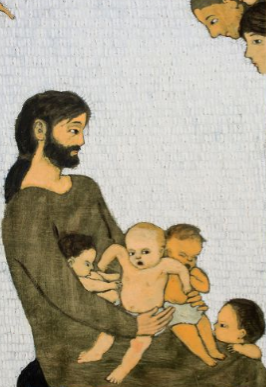
It’s my pleasure to share here a guest post from my friend Samuel Morris Brown. By inclination, I’m something of a misanthrope. I’m not sure where I came by this trait. Maybe it’s good old-fashioned nature, some mixture of a thousand different genes that makes me by default uninterested in other human beings. Maybe I’ve got something wrong with my hippocampus or superior temporal sulcus, too many or too few synapses in my brain. As a pretentious teenager, I wondered whether I was a (non-violent, non-criminal) sociopath because I felt so little engaged in the world of people. That imaginary… Read More
-
•
•
4 responses
The 20th Fair Mormon Conference will be August 1-3 at the Utah Valley Convention Center. If you’re not able to go they’ll provide streaming of the presentations. Read More
-
•
•
13 responses
This past May, I went to see Jana Riess present her recent research on Mormon Millennials at the Miller Eccles Study Group here in Texas. One of the most interesting (and disturbing) bits of information was her finding regarding Mormons’ opinions about the priesthood/temple ban. As she summarizes online, The 2016 NMS asked whether respondents felt that the ban on members of African descent was “inspired of God and was God’s will for the Church until 1978.” Respondents were given a five-point scale of possible responses, with the upshot being that nearly two-thirds of self-identified Latter-day Saints say they either… Read More
